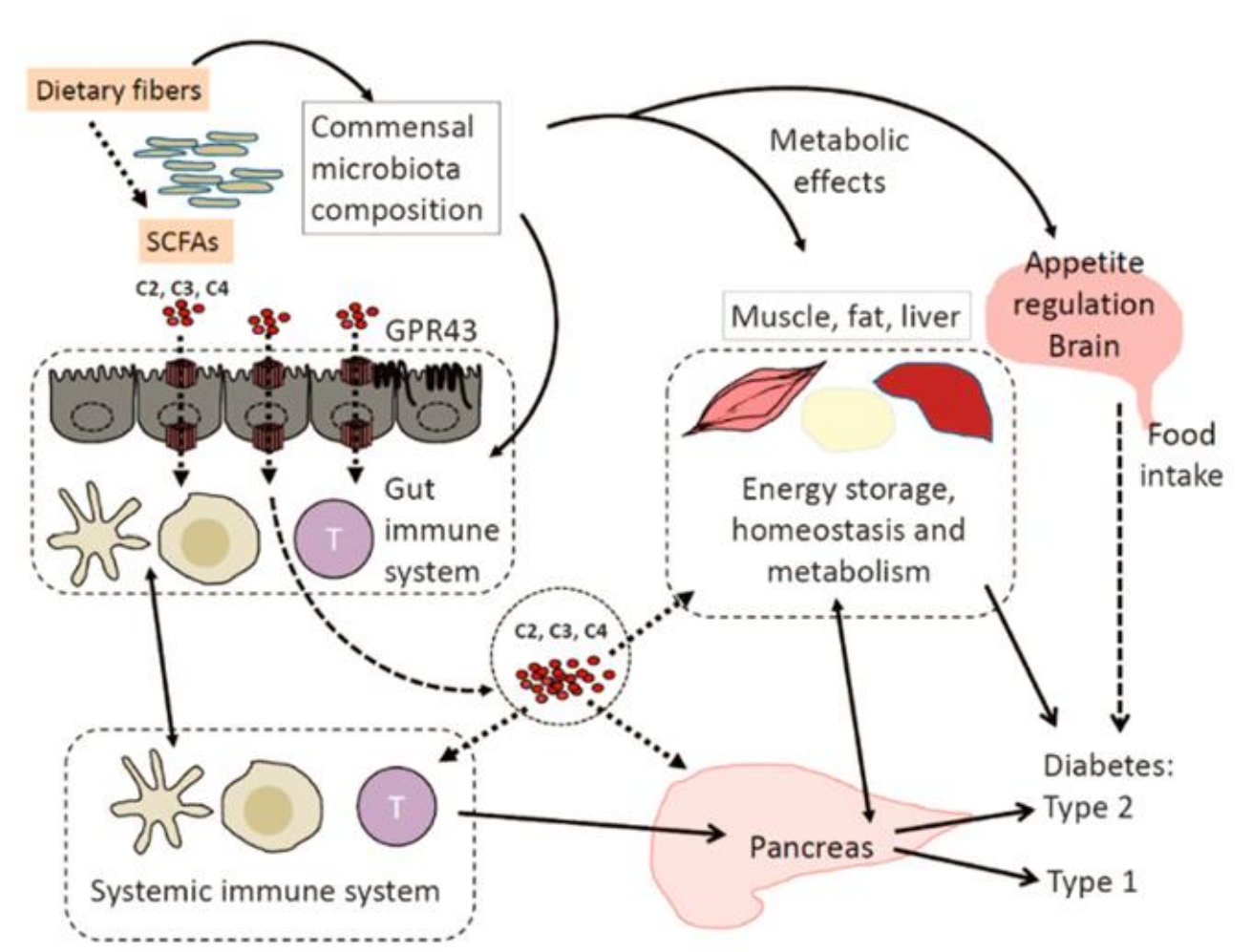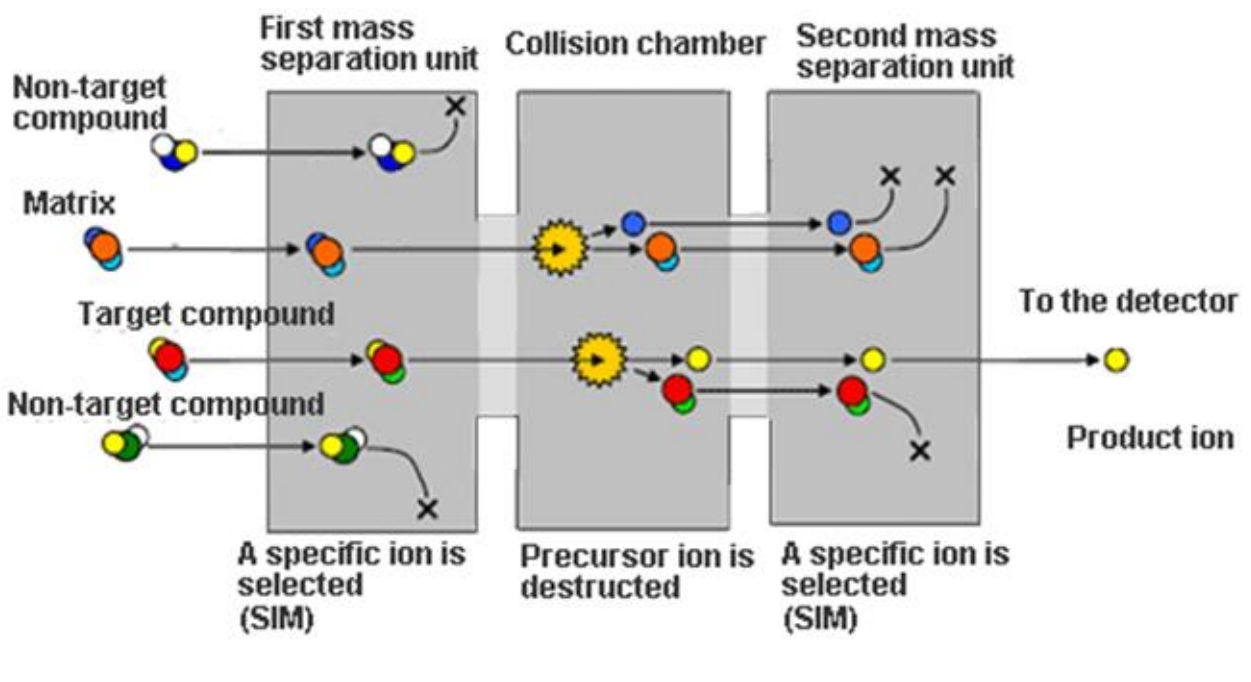MtoZ Biolabs GC-MS Based Short-Chain Fatty Acid (SCFA) Analysis Service: High-Sensitivity Metabolite Quantification
MtoZ Biolabs is proud to offer a comprehensive Short-Chain Fatty Acid (SCFA) analysis service based on advanced GC-MS technology. SCFAs, such as acetate, propionate, butyrate, and others, are essential metabolites in various biological systems, particularly in the gut microbiome. Their roles in metabolism, immune regulation, and disease progression make them critical research targets for understanding microbial-host interactions, obesity, inflammation, and metabolic disorders.

SCFA Analysis Service Overview
Our targeted SCFA analysis employs the Gas Chromatography-Mass Spectrometry (GC-MS) platform, ensuring high sensitivity and accuracy in identifying and quantifying these metabolites from complex biological samples. The SIM (Selected Ion Monitoring) principle is applied to enhance detection sensitivity, focusing on ions characteristic of SCFAs, leading to precise and reliable quantitative results.
Technical Approach: SIM Principles
The SCFA analysis by GC-MS uses SIM mode, where specific ions of interest are selected and monitored to enhance sensitivity and detection limits. This technique ensures higher specificity for short-chain fatty acids, minimizing background interference and allowing for accurate quantification of even low-abundance metabolites. The method has been optimized for high-throughput analysis, offering quick turnaround times while maintaining the highest data quality.

Experimental Workflow
1. Sample Preparation: Biological samples (e.g., plasma, feces) are collected, followed by derivatization to enhance volatility and stability for GC-MS analysis.
2. GC-MS Separation: The samples are injected into the GC-MS system, where SCFAs are separated based on their chemical properties and subjected to mass spectrometry for detection.
3. Data Acquisition: The SIM method is utilized to monitor key ions corresponding to each SCFA, ensuring the acquisition of highly specific and sensitive data.
4. Data Processing: A comprehensive analysis pipeline is applied, including peak integration, ion ratio verification, and SCFA concentration calculation. The resulting data provide precise quantification of individual SCFAs in each sample.
Experimental Method and Data Processing
The experimental method begins with the precise calibration of standards, followed by the collection of biological samples under specific conditions, such as storage at -80°C to preserve metabolite integrity. The samples are then processed, including extraction and derivatization, before undergoing GC-MS analysis. SCFA concentrations are determined using internal and external standards, ensuring high reproducibility and reliability of the results.
The data are processed using advanced software to ensure accurate peak identification and quantification, with stringent quality control measures applied at each step. The results can be integrated with other omics data to provide deeper insights into metabolic pathways.

Expanded Research Recommendations
Current research has established the importance of SCFA analysis in the study of gut microbiota and metabolic health. SCFAs not only reflect the metabolic activity of the microbiome but also play pivotal roles in the host's immune function, energy balance, and disease development. For expanded research, we recommend:
1. Exploring SCFA interactions with GLP-1 and PYY:
These gut hormones are associated with energy homeostasis and inflammation. By analyzing SCFA levels, researchers can uncover links between microbiota activity and host metabolic signaling pathways.
2. Investigating SCFA and Inflammation:
SCFA modulation of inflammatory pathways presents a compelling area of study, particularly in conditions such as metabolic syndrome and inflammatory bowel disease (IBD).
3. Microbiome Diversity and Function:
A comprehensive analysis of microbiome-derived SCFAs can provide insights into microbial diversity and functional potential. We recommend pairing SCFA analysis with 16S rRNA sequencing to better understand the microbial ecology driving SCFA production.
Mto Z Biolabs can provide a full set of solutions from microbial diversity research to functional research, which can be selected according to actual needs.

Applications
Our SCFA analysis service offers significant value for researchers in various fields:
✔️ Microbiome Research: Understand how the gut microbiota modulates host metabolism through SCFA production.
✔️ Metabolic Health: Investigate the role of SCFAs in diseases like obesity, diabetes, and metabolic syndrome.
✔️ Immunology: Explore the immune-modulating effects of SCFAs in inflammatory diseases.
Why Choose MtoZ Biolabs?
✔️ Cutting-edge Technology: We utilize state-of-the-art GC-MS systems optimized for SCFA detection.
✔️ High Sensitivity: Our SIM-based approach ensures the accurate detection of low-abundance metabolites.
✔️ Expert Data Analysis: Our team provides detailed, high-quality data that can be integrated with broader metabolomic studies.
✔️ Customizable Solutions: We offer tailored services to meet the specific needs of your research, from sample preparation to data interpretation.
How to order?







